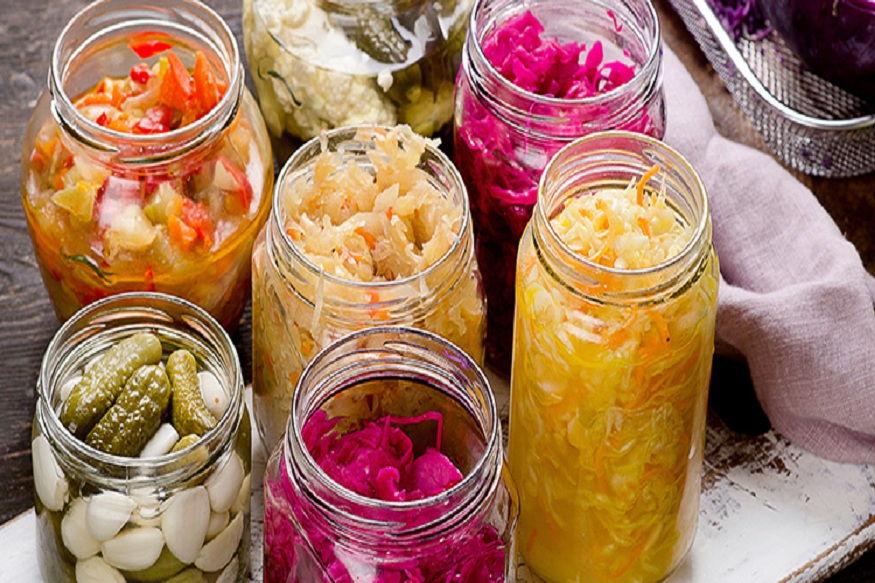
Millets Meet Fermentation: Ancient Indian Foods for Gut Health
When it comes to improving your gut health, sometimes going back to old traditional cooking method helps. Millets and fermentation have been a part of Indian kitchens for generations because they work wonders to maintain the gut microbiome.
Millets are light, filling, and easy to digest, while fermentation brings in that natural boost of good bacteria. Whether it’s a bowl of fermented ragi porridge or a dosa made with millet batter, these age-old combinations are making a quiet, delicious comeback, and for all good reasons. Let’s explore the benefits of incorporating millet dishes that use the fermentation method.
What Are Millets?
Millets are a group of small-seeded grains that have been cultivated in India. There are different types of millets varieties available such as ragi (finger millet), bajra (pearl millet), jowar (sorghum), and foxtail millet, among others. These grains are naturally gluten-free, rich in fibre, and packed with essential nutrients like iron, calcium, magnesium, and B vitamins. For generations, people across many parts of India relied on millets as a daily staple, long before polished rice and wheat became common in our kitchens.
Why Millets and Fermentation Technique Work So Well?
Ever wondered why fermented millet dishes like dosa orambali just feel good on the stomach? Millets are already packed with nutrients, but when you ferment them, their benefits go up a notch. Fermentation makes them easier to digest, helps your body soak up more minerals, and adds those gut friendly probiotics.So, ifyou’re looking for simple, natural ways to support your gut health, this duo might just be right one to start with. Let’s Explore other benefits below:
- Aids in Digestion: Fermented foods break down complex carbohydrates in millets, making them easier for the gut to process.
- Boost Probiotics: Good bacteria thrive during fermentation, supporting a healthy gut microbiome.
- Helps Absorb Nutrients: Fermentation increases the bioavailability of important minerals in millets, especially iron and zinc.
- Reduces sugar spikes: Fermented millet dishes tend to have a lower glycaemic index, aiding blood sugar management.
How to Incorporate Fermented Millets into Your Diet
From classic dishes like dosa and porridge to modern snacks and drinks, fermented millets fit right into everyday eating. The best part? They’re tasty, nutritious, and great for your digestion. Let’s explore some simple ideas to bring these ancient superfoods into your routine without any hassle.
- Try Traditional Recipes: Start with simple dishes like millet dosa or ragi ambali. You can find ready-to-use millet dosa batter or millet flour in many stores.
· Experiment with Fermentation: If you enjoy home cooking, soak millet flour overnight with a bit of yoghurt or sourdough starter to ferment and then prepare pancakes, porridge, or breads.
· Look for Products: Many brands like Right Shift offer millet-based snacks and meal kits that make incorporating these foods convenient.
· Balance Your Diet: Fermented millets can be part of a balanced diet alongside fresh fruits, vegetables, and other wholesome ingredients to maximise health benefits.
Conclusion
Millets and fermentation have been nourishing Indian families for generations. These simple, traditional foods support digestion, boost gut health, and offer nutrition in a way that’s easy to enjoy.
FAQs
1. Which types of millets are best suited for fermentation?
Commonly fermented millets include ragi (finger millet), bajra (pearl millet), jowar (sorghum), and foxtail millet. These are naturally gluten-free and pair well with traditional fermentation methods like those used in dosa, ambali, and kanji.
2. How does fermentation improve the nutritional value of millets?
Fermentation breaks down anti-nutrients like phytic acid in millets, increasing the bioavailability of minerals. It also enriches the food with probiotics, aiding digestion and boosting immunity.
3. Can fermented millet foods be included in modern diets?
Yes! Fermented millet dishes like millet dosa, ambali, and even millet-based kombucha or smoothies are being adapted into contemporary diets for their taste and gut-health benefits.


